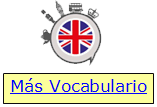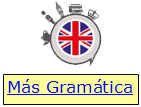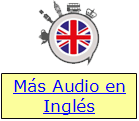Vocabulary: Word Formation
What are prefixes and what are suffixes?
Examples of prefixes: un- in- mis-
Prefixes change the meaning of a word (believable + un = unbelievable)
Examples of suffixes: -tion -ly -ment
Suffixes change the word class (govern + -ment = governnment)
Prefixes (adjectives)
happy + un = unhappy
decent + in = indecent
legal + il = illegal
relevant + ir = irrelevant
understood + mis = misunderstood
satisfied + dis = dissatisfied
possible + im = impossible
Suffixes (changing adjectives to nouns)
happy – happiness / unhappiness
decent – decency
illegal – illegality
irrelevant – irrelevancy / irrelevance
understood – understanding
misunderstood – misunderstanding
dissatisfied – dissatisfaction
possible – possibility
impossible – impossibility
Sometimes there are other word changes:
adjective – noun
long – length
wide – width
high – height
deep – depth
What nouns can you think of that use these
suffixes?
-ment improvement, development, enjoyment, department, commitment
-er owner, teacher, baker, adventurer, computer, lawyer
-or doctor, actor, professor, sailor, inventor
-tion station, adoption, transaction, prediction, invention, redemption,
absorption
-sion confusion, tension, admission, conclusion, aggression
-ation liberation, organisation, fraternisation, imagination,
abbreviation, radiation
-ition proposition, fruition, ambition, competition, composition,
repitition
-ship friendship, relationship, internship
-ity university, fraternity, serendipity, city, witty
-ance relevance, occupance, deliverance
-ence independence, dependence
What adjectives can you think of that use these suffixes?
-ive attractive, creative, inventive, constructive, addictive,
productive
-ative talkative, imaginative, argumentative, informative
-itive sensitive, definitive, fugitive, repetitive, competitive
-able suitable, countable, predictable, enjoyable, capable
-ible convertible, sensible, irresponsible, reversible
How can you improve your word families?
Think of a root word, for example ‘education’, and try to think of as
many words as possible based on that root word: educational,
uneducational, educationally, educated, uneducated, educationalist,
educator
Reading helps. Read a lot. Read about your hobbies and pastimes. Read
about things you’re interested in.
Identify words as verbs, nouns, adjectives and adverbs. Learn the
suffixes and prefixes of words. Not only new words, but words you may
already know, but maybe you don’t know all the different word groups of
those words.
It can also help to make a word table. For example, a table with 4
columns, in the first column the verb, then the adjective, then the noun,
and finally the adverb.
So, for example, you might have TO CONFUSE / CONFUSED or CONFUSING /
CONFUSION / CONFUSINGLY
More prefixes
pre- (before) prehistoric, pre-natal, prehistory
post- (after) post-natal, postscript
over- (too much) overcook, overeat, overweight, overpay
under- (not enough/below) undercook, underpay, underweight, underground
pro- (in favour of) proindependance
anti- (against) anti-fascist, anti-independance, anti-abortion, anti-adhesive
non- (not) non-stick, non-negotiable
bi- (of two) bisexual
hetro- (a mixture) hetrosexual, hetrogeneous
homo- (the same) homosexual, homogeneous
extra- (more than) extraordinary
ex- (from the past/old) ex-girlfriend, ex-boss, ex-wife, ex-husband
infra- (very low) infrared
ultra- (very high) ultranationalist, altraviolet
micro- (very small) microscope, microorganism, microbiology,
microadvertising
macro- (very large) macroeconomics
hyper- (very, very large/too much) hypermarket, hyperactive,
hypersensitive, hypertension
sub- (under) submarine, substandard, subhuman
pan- (of everything) pan-Spain
inter- (between, among) internation, intercontenental, interplanetary
 *Dispones
de más
PODCAST en inglés publicados en los cuadernos anteriores *Dispones
de más
PODCAST en inglés publicados en los cuadernos anteriores
a los que puedes acceder directamente así como al índice de su
contenido. |
|
|
